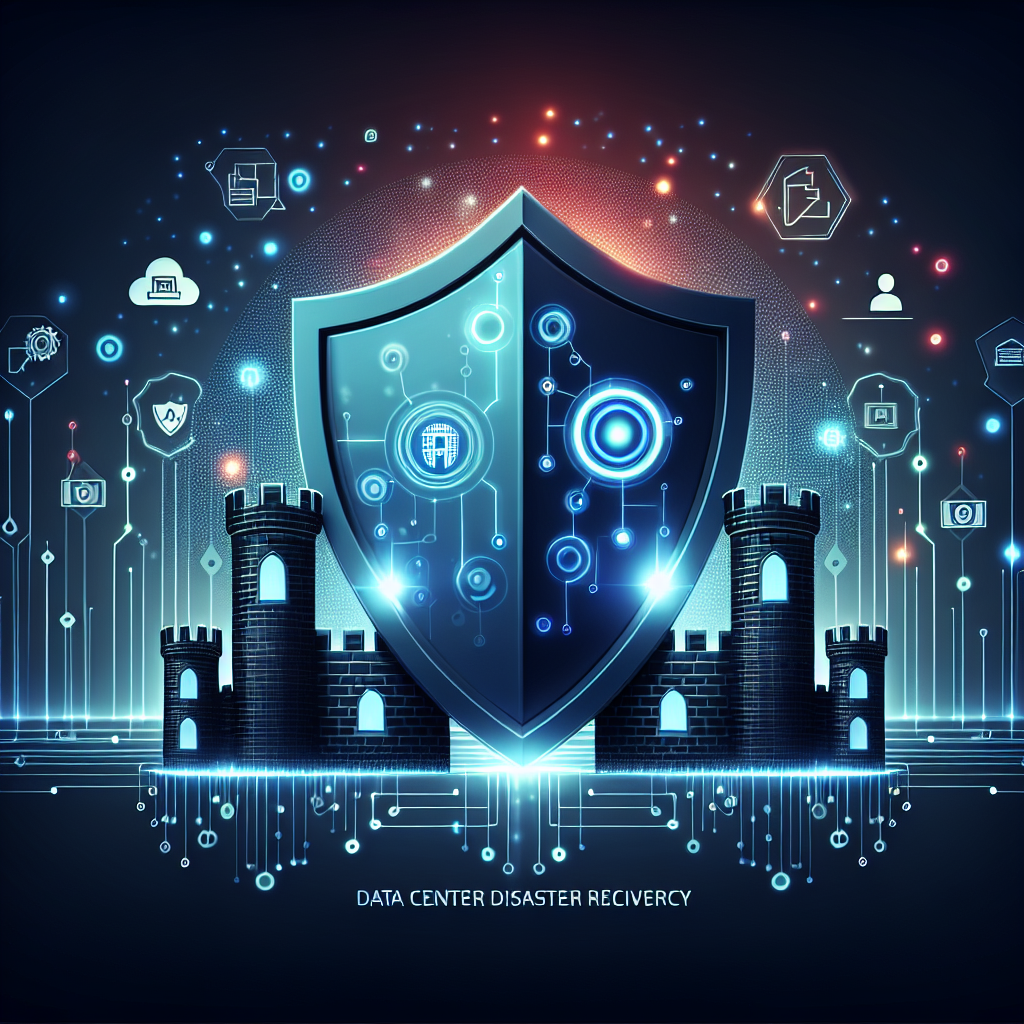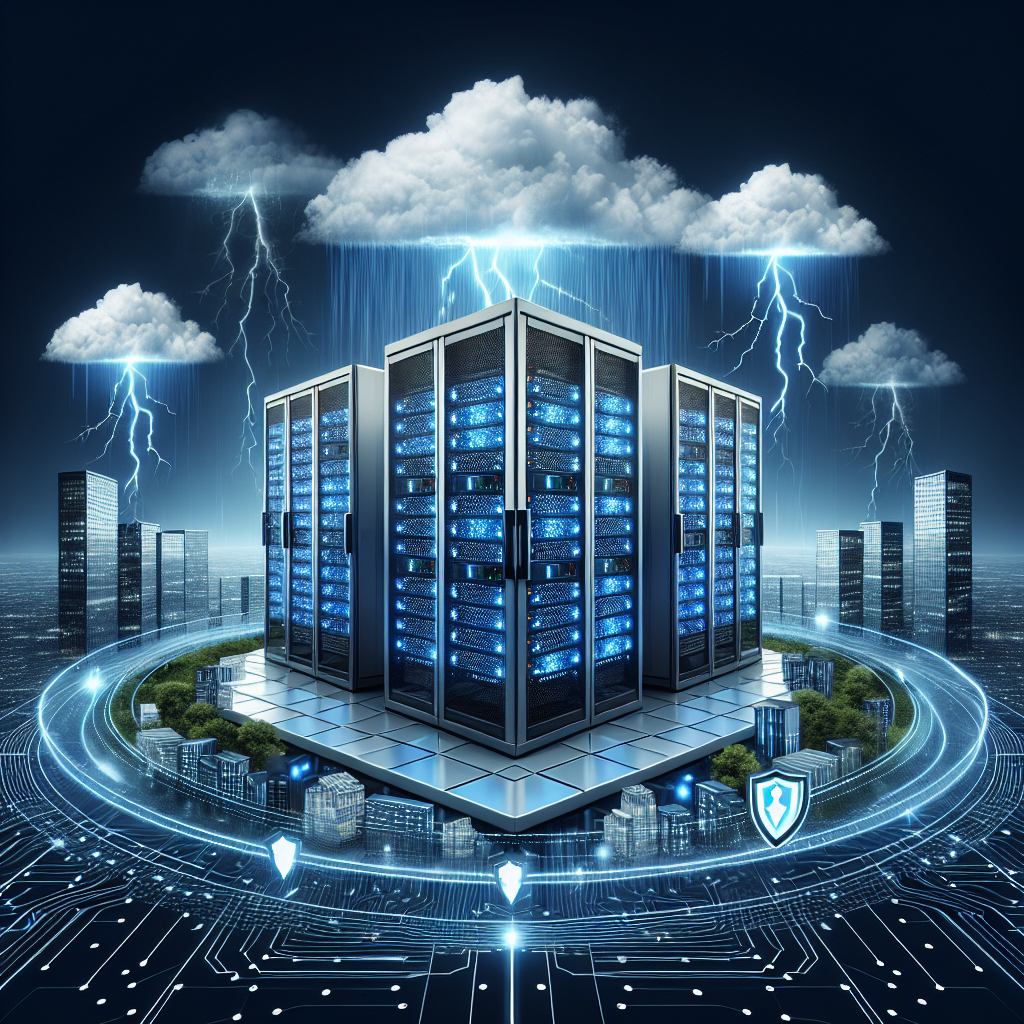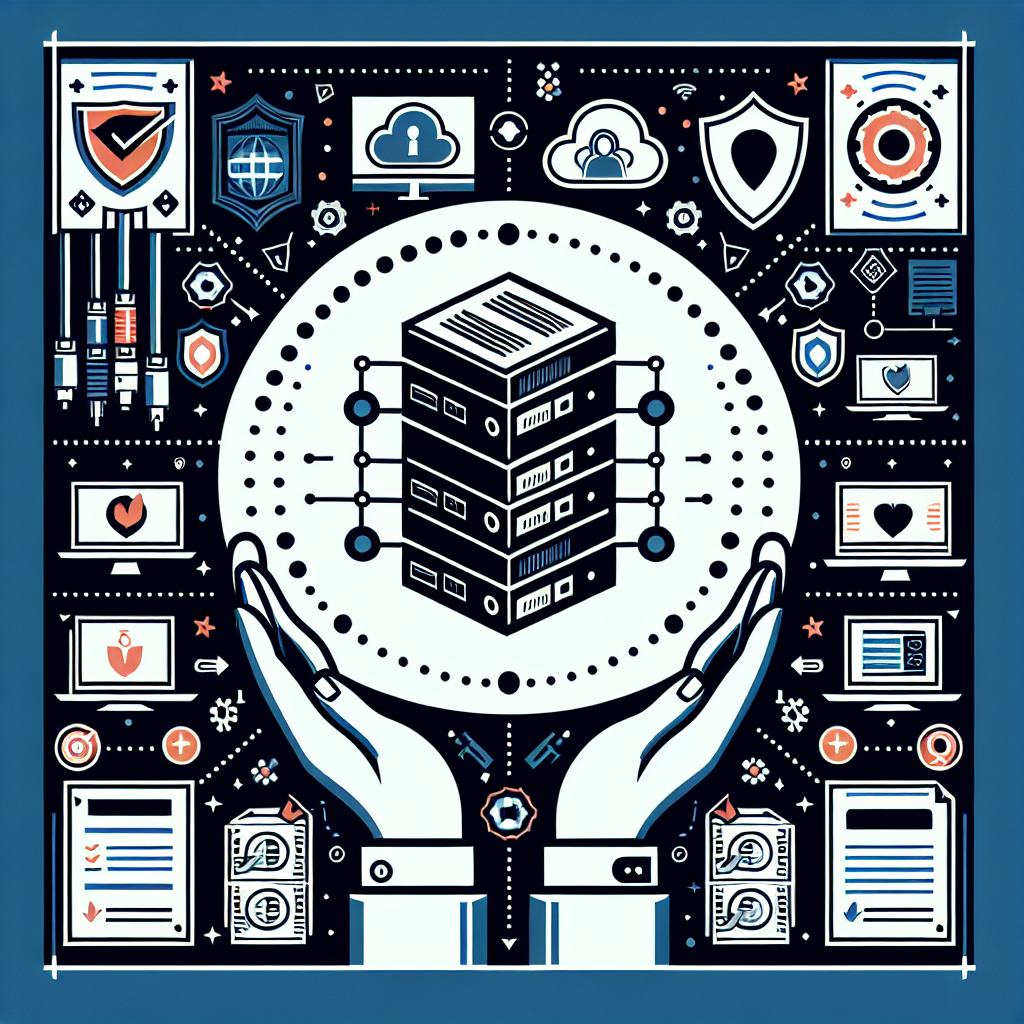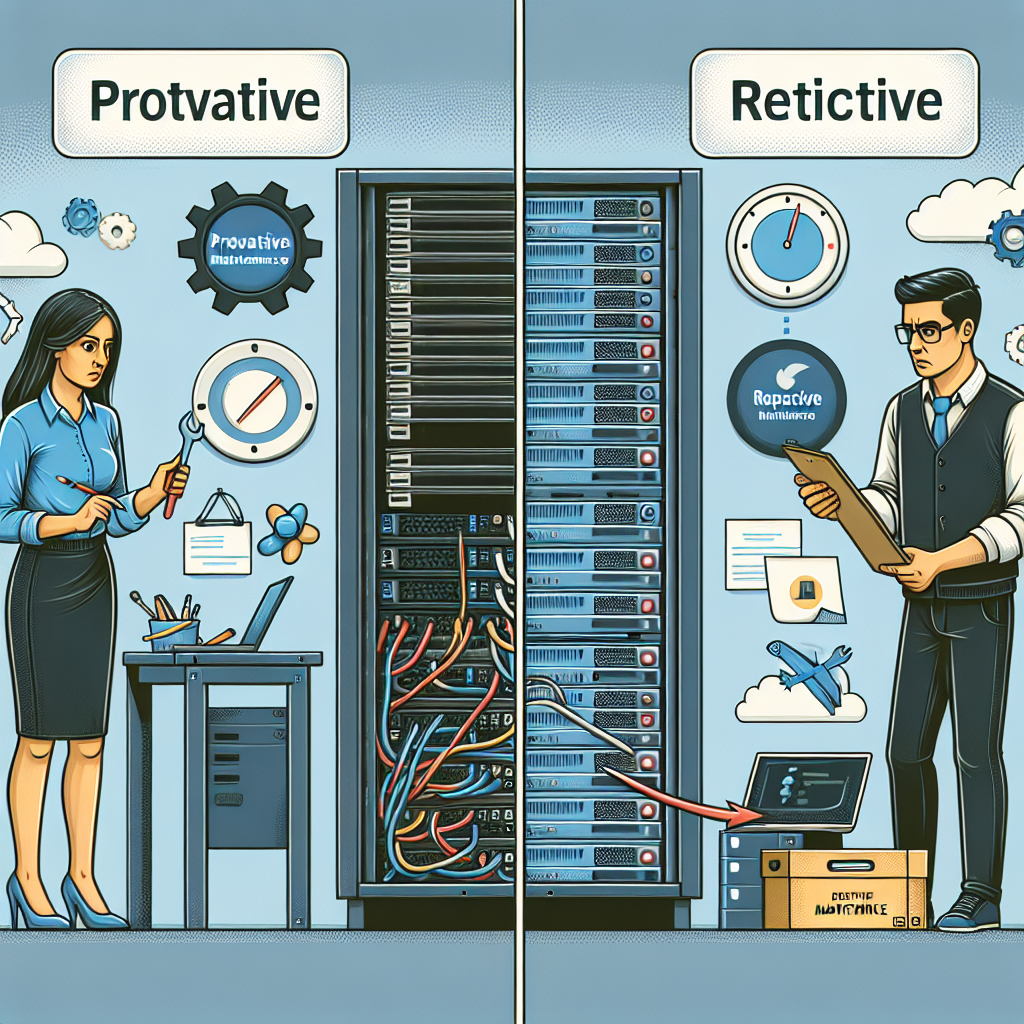Your cart is currently empty!
Tag: Business

Protecting Your Business with Data Center Disaster Recovery: Tips and Tricks for Success
In today’s digital age, data is the lifeblood of businesses. From customer information and financial records to intellectual property and operational systems, businesses rely on data to operate efficiently and effectively. However, with the increasing reliance on technology comes the risk of data loss due to disasters such as natural disasters, cyberattacks, and hardware failures. This is where data center disaster recovery comes into play.Data center disaster recovery is the process of protecting and recovering data in the event of a disaster. By implementing a robust disaster recovery plan, businesses can ensure that their critical data is protected and can be quickly restored in the event of a disaster. Here are some tips and tricks for success in protecting your business with data center disaster recovery:
1. Conduct a risk assessment: Before implementing a data center disaster recovery plan, it’s important to assess the risks that your business faces. Consider potential threats such as natural disasters, cyberattacks, and hardware failures, and identify the potential impact these threats could have on your business. This will help you prioritize your disaster recovery efforts and allocate resources effectively.
2. Implement a backup strategy: One of the most important aspects of data center disaster recovery is having a robust backup strategy in place. Regularly back up your critical data to multiple locations, including offsite and cloud storage, to ensure that your data is protected and can be quickly restored in the event of a disaster.
3. Test your disaster recovery plan: Don’t wait until a disaster strikes to test your disaster recovery plan. Regularly conduct tests and simulations to ensure that your plan is effective and can be executed quickly and efficiently in the event of a disaster. Identify any weaknesses or gaps in your plan and make necessary adjustments to improve its effectiveness.
4. Train your employees: Your employees play a crucial role in data center disaster recovery. Ensure that your employees are trained on the procedures and protocols of your disaster recovery plan so that they can respond quickly and effectively in the event of a disaster. Regular training and drills can help ensure that your employees are prepared to handle any disaster situation.
5. Monitor and update your disaster recovery plan: Disaster recovery is an ongoing process, and it’s important to regularly monitor and update your disaster recovery plan to ensure that it remains effective and relevant. Stay abreast of new threats and technologies, and make necessary adjustments to your plan to address any emerging risks.
By following these tips and tricks for success in protecting your business with data center disaster recovery, you can ensure that your critical data is protected and can be quickly restored in the event of a disaster. Don’t wait until it’s too late – take proactive steps to protect your business and safeguard your data today.

The Role of Data Center Preventative Maintenance in Ensuring Business Continuity
In today’s digital age, data centers play a crucial role in keeping businesses up and running. These facilities house the servers and networking equipment that store and process vast amounts of data, making them essential for the smooth operation of modern enterprises. However, like any complex system, data centers require regular maintenance to ensure they continue to function efficiently and reliably. Preventative maintenance, in particular, plays a key role in keeping data centers operational and minimizing the risk of costly downtime.Preventative maintenance involves regularly inspecting and servicing the various components of a data center to address potential issues before they escalate into major problems. This proactive approach helps to identify and resolve issues early on, preventing equipment failures and minimizing the risk of unplanned downtime. By conducting routine maintenance tasks such as cleaning, testing, and replacing worn-out components, data center operators can keep their facilities running smoothly and avoid costly disruptions to their operations.
One of the primary goals of preventative maintenance in data centers is to ensure business continuity. Downtime can have serious consequences for a company, leading to lost revenue, decreased productivity, and damage to its reputation. By implementing a comprehensive maintenance program, data center operators can reduce the likelihood of equipment failures and ensure that their systems are always available when needed. This is especially important for businesses that rely heavily on their data centers to deliver services to customers or support critical operations.
In addition to preventing downtime, regular maintenance can also help to extend the lifespan of data center equipment and optimize its performance. By keeping components clean and well-maintained, operators can ensure that their systems operate at peak efficiency, reducing energy consumption and saving money on utility costs. Proper maintenance can also help to identify opportunities for upgrades and improvements, allowing data centers to keep pace with evolving technologies and meet the changing needs of their users.
Overall, the role of preventative maintenance in ensuring business continuity cannot be overstated. By investing in regular maintenance and staying proactive in addressing potential issues, data center operators can minimize the risk of downtime and keep their systems running smoothly. This not only helps to protect their bottom line but also ensures that they can continue to deliver reliable services to their customers. In today’s competitive business environment, the importance of preventative maintenance in data centers cannot be ignored.

The Role of Data Center MTTR in Business Continuity Planning
In today’s digital age, data centers play a crucial role in ensuring the smooth operation of businesses. These centralized facilities are responsible for storing, processing, and managing large amounts of data that are essential for the day-to-day operations of companies. As such, any disruption to a data center can have serious implications for a business, making it imperative for organizations to have a robust business continuity plan in place.One key metric that is often used to measure the effectiveness of a business continuity plan is the Mean Time to Repair (MTTR) of a data center. MTTR is the average time it takes for a data center to recover from a failure or outage and resume normal operations. A low MTTR indicates that a data center is able to quickly identify and address issues, minimizing downtime and ensuring business continuity.
The role of MTTR in business continuity planning cannot be understated. A high MTTR can have a significant impact on a business’s bottom line, resulting in lost revenue, damaged reputation, and diminished customer trust. In today’s highly competitive market, where downtime is simply not an option, organizations must strive to keep their MTTR as low as possible to ensure uninterrupted operations.
To achieve a low MTTR, businesses must invest in proactive monitoring and maintenance of their data center infrastructure. By regularly monitoring the health and performance of their systems, organizations can identify potential issues before they escalate into full-blown outages. Additionally, having a well-defined incident response plan in place can help streamline the recovery process, allowing for quick and efficient resolution of issues.
Furthermore, businesses should also consider implementing redundancy and failover mechanisms to minimize the impact of any potential outages. By having backup systems in place, organizations can ensure that critical data and applications remain accessible even in the event of a failure.
In conclusion, the role of data center MTTR in business continuity planning is crucial for ensuring the uninterrupted operation of businesses. By keeping MTTR low through proactive monitoring, maintenance, and incident response planning, organizations can minimize downtime, protect their bottom line, and maintain the trust of their customers. As data centers continue to play an increasingly important role in the digital landscape, businesses must prioritize business continuity planning to safeguard their operations and ensure long-term success.

Challenges and Solutions for Data Center Business Continuity
Data centers play a crucial role in the digital age, as they store and manage vast amounts of data for businesses and organizations. In order to ensure the smooth operation of data centers, it is essential to have a robust business continuity plan in place. However, there are several challenges that data center operators face when it comes to ensuring business continuity. In this article, we will explore some of these challenges and potential solutions.One of the major challenges for data center business continuity is the risk of natural disasters. Data centers are vulnerable to events such as earthquakes, hurricanes, floods, and fires, which can cause significant damage and disrupt operations. To mitigate this risk, data center operators can implement measures such as redundant power supplies, fire suppression systems, and physical security measures to protect their facilities from natural disasters.
Another challenge for data center business continuity is the risk of cyber attacks. Data centers are prime targets for hackers looking to steal sensitive information or disrupt operations. To address this challenge, data center operators should implement robust cybersecurity measures, such as firewalls, intrusion detection systems, and encryption protocols, to protect their data and infrastructure from cyber threats.
Furthermore, data center operators also face challenges related to human error and technical failures. Employees may accidentally delete important data, or hardware and software systems may fail unexpectedly, leading to downtime and loss of data. To address these challenges, data center operators should provide training to employees on data security best practices and regularly test and maintain their hardware and software systems to prevent technical failures.
In order to ensure business continuity in the face of these challenges, data center operators should develop a comprehensive business continuity plan that outlines procedures for responding to various types of disruptions. This plan should include strategies for data backup and recovery, alternative power sources, and communication protocols for employees and customers.
In conclusion, data center business continuity is essential for ensuring the smooth operation of data centers in the face of natural disasters, cyber attacks, human error, and technical failures. By implementing robust cybersecurity measures, physical security measures, and a comprehensive business continuity plan, data center operators can mitigate these challenges and ensure the uninterrupted operation of their facilities.

Choosing the Right Data Center Security System for Your Business
In today’s digital age, data security is of utmost importance for businesses of all sizes. With the increasing number of cyber threats and data breaches, it is crucial for companies to invest in a robust data center security system to protect their sensitive information. Choosing the right data center security system for your business can be a daunting task, but with the right guidance, you can ensure that your data is safe and secure.When selecting a data center security system, there are several factors to consider. First and foremost, you need to assess the level of security required for your business. This will depend on the type of data you store, the industry regulations you need to comply with, and the potential risks your business faces. For example, a financial institution will require a higher level of security compared to a small retail business.
Next, you need to consider the physical security measures of the data center. This includes access control systems, surveillance cameras, and security guards. Access control systems such as biometric scanners, key cards, and PIN codes can help prevent unauthorized access to the data center. Surveillance cameras can monitor the premises 24/7, while security guards can provide an extra layer of protection.
In addition to physical security measures, you also need to consider cybersecurity measures. This includes firewalls, encryption, intrusion detection systems, and antivirus software. Firewalls can prevent unauthorized access to your network, while encryption can protect your data from being intercepted during transmission. Intrusion detection systems can monitor network traffic for suspicious activity, while antivirus software can detect and remove malware.
Another important factor to consider when choosing a data center security system is scalability. As your business grows, your security needs may change. It is important to select a security system that can easily scale to accommodate your growing business without compromising on security.
Lastly, you need to consider the cost of the data center security system. While it is important to invest in a robust security system, you also need to consider your budget. Look for a system that offers the best value for money and meets your security requirements.
In conclusion, choosing the right data center security system for your business is essential to protect your sensitive information from cyber threats. By assessing your security needs, considering physical and cybersecurity measures, ensuring scalability, and considering cost, you can select a security system that meets your business requirements and keeps your data safe and secure.

Understanding the Role of Data Center Compliance in Business Operations
Data centers play a crucial role in the modern business landscape, as they are responsible for storing and managing the vast amounts of data that organizations generate on a daily basis. With the increasing importance of data in driving business decisions and operations, it has become essential for businesses to ensure that their data centers are compliant with relevant regulations and standards.Data center compliance refers to the adherence to industry-specific regulations and standards that govern the way data is stored, processed, and transmitted. These regulations are designed to protect sensitive information, ensure data security, and uphold the privacy rights of individuals. Failure to comply with these regulations can result in severe penalties, legal action, and damage to a company’s reputation.
There are several key regulations that businesses need to be aware of when it comes to data center compliance. The General Data Protection Regulation (GDPR) is one of the most well-known regulations, as it governs the way companies handle the personal data of European Union citizens. The Health Insurance Portability and Accountability Act (HIPAA) is another important regulation that sets standards for the security and privacy of healthcare information.
In addition to regulatory compliance, businesses also need to consider industry-specific standards when it comes to data center operations. For example, organizations in the financial services sector may need to comply with the Payment Card Industry Data Security Standard (PCI DSS), which sets requirements for the handling of credit card information.
Ensuring data center compliance is not just a matter of ticking boxes on a checklist – it is a critical aspect of business operations that can impact the bottom line. Non-compliance can result in data breaches, financial losses, and damage to a company’s reputation. On the other hand, maintaining compliance can help businesses build trust with customers, partners, and regulators, and demonstrate their commitment to data security and privacy.
To achieve data center compliance, businesses need to implement robust security measures, conduct regular audits, and ensure that their data center infrastructure meets the necessary standards. This may involve investing in the latest technology, hiring skilled IT professionals, and working with third-party providers who specialize in data center compliance.
In conclusion, understanding the role of data center compliance in business operations is essential for organizations that rely on data to drive their success. By ensuring that their data centers are compliant with relevant regulations and standards, businesses can protect sensitive information, strengthen their cybersecurity defenses, and build trust with stakeholders. Ultimately, data center compliance is not just a legal requirement – it is a strategic imperative that can help businesses stay competitive and secure in today’s data-driven world.

The Role of Data Center Capacity Planning in Business Continuity
Data centers play a crucial role in the operations of businesses today. They store and manage vast amounts of data, ensuring that critical information is always accessible and secure. In the event of a disaster or disruption, data centers are vital for maintaining business continuity. One key aspect of ensuring the smooth functioning of a data center is capacity planning.Capacity planning is the process of determining the computing and storage resources needed to support current and future business requirements. It involves analyzing data center infrastructure, such as servers, storage devices, and networking equipment, to ensure that there is enough capacity to handle the workload at any given time.
Capacity planning is essential for business continuity because it helps to prevent downtime and ensure that data remains accessible in the event of a disaster. By accurately forecasting the demand for computing and storage resources, businesses can avoid overloading their data centers and experiencing performance issues.
Capacity planning also allows businesses to scale their data center infrastructure as needed. As businesses grow and their data storage needs increase, capacity planning helps to ensure that the data center can accommodate this growth without experiencing downtime or performance issues.
In addition, capacity planning helps businesses to make informed decisions about their data center investments. By accurately forecasting future capacity requirements, businesses can avoid unnecessary spending on infrastructure that may not be needed. This can help businesses to optimize their IT budgets and allocate resources more efficiently.
Overall, capacity planning is a critical component of business continuity planning. By ensuring that data center resources are properly sized and managed, businesses can minimize the risk of downtime and data loss, and ensure that critical information remains accessible at all times. Investing in capacity planning is essential for businesses that rely on data centers to support their operations and ensure the continuity of their business processes.

The Role of Disaster Recovery in Data Center Business Continuity
In today’s digital age, data centers play a crucial role in ensuring the smooth operation of businesses. These facilities house and manage vast amounts of data that are essential for business operations, making them a key component of any organization’s infrastructure. However, with the increasing frequency and severity of natural disasters, such as hurricanes, earthquakes, and cyberattacks, data centers are vulnerable to disruptions that can lead to data loss and downtime.This is where disaster recovery comes into play. Disaster recovery is the process of restoring data and IT infrastructure after a disaster, ensuring that business operations can resume as quickly as possible. In the context of data centers, disaster recovery is a critical component of business continuity planning, as it helps organizations mitigate the impact of disruptions and maintain operational efficiency.
The role of disaster recovery in data center business continuity cannot be overstated. In the event of a disaster, such as a power outage or a cyberattack, data centers must be able to quickly recover and restore data to avoid prolonged downtime. This is where disaster recovery plans come into play. These plans outline the steps that need to be taken to recover data and restore operations in the event of a disaster, ensuring that businesses can continue to operate without interruption.
Furthermore, disaster recovery helps organizations meet regulatory requirements and protect their reputation. In today’s data-driven world, data breaches and downtime can have severe consequences for businesses, leading to financial losses and damage to their brand. By having a robust disaster recovery plan in place, organizations can minimize the impact of disruptions and ensure the continuity of their operations.
In conclusion, the role of disaster recovery in data center business continuity is essential for organizations looking to protect their data and maintain operational efficiency. By investing in disaster recovery planning and implementing robust recovery solutions, businesses can ensure that they are prepared for any eventuality and can quickly recover from disasters to minimize downtime and protect their reputation.

Choosing the Right Data Center Storage Solution for Your Business
In today’s digital age, businesses are generating and collecting more data than ever before. As a result, the need for efficient and reliable data storage solutions has become paramount. Choosing the right data center storage solution for your business is crucial in ensuring that your data is secure, accessible, and scalable.There are several factors to consider when selecting a data center storage solution. The first step is to assess your data storage needs. Consider the volume of data your business generates, the type of data (such as structured or unstructured data), and how quickly your data is growing. This will help you determine the amount of storage capacity you require.
Next, consider the level of data protection and security your business needs. Data breaches and cyber attacks are a real threat, so choosing a storage solution with robust security features, such as encryption and access controls, is essential to safeguard your data.
Scalability is another important factor to consider. As your business grows, your data storage needs will also increase. Choosing a storage solution that can easily scale up or down to accommodate your changing storage requirements is crucial in avoiding costly disruptions to your business operations.
Cost is also a key consideration when selecting a data center storage solution. Compare the costs of different storage options, such as traditional on-premises storage, cloud storage, and hybrid storage solutions, and choose the one that best fits your budget while meeting your storage needs.
Lastly, consider the reliability and performance of the storage solution. Downtime can be costly for businesses, so choose a storage solution with high availability and fast performance to ensure that your data is always accessible when you need it.
In conclusion, choosing the right data center storage solution for your business requires careful consideration of your data storage needs, security requirements, scalability, cost, and performance. By taking the time to evaluate these factors and select a storage solution that meets your business requirements, you can ensure that your data is secure, accessible, and scalable, allowing your business to thrive in the digital age.

Proactive vs. Reactive Server Maintenance: Which Approach is Best for Your Business?
In the world of server maintenance, there are two main approaches that businesses can take: proactive and reactive. Each approach has its own set of advantages and disadvantages, and choosing the right one for your business can have a significant impact on your bottom line.Proactive server maintenance involves regularly monitoring and maintaining your servers to prevent issues from occurring in the first place. This can include tasks such as updating software, replacing hardware components before they fail, and optimizing server performance. By taking a proactive approach to server maintenance, businesses can minimize downtime, improve system reliability, and reduce the risk of data loss.
On the other hand, reactive server maintenance involves addressing issues as they arise. This approach is often seen as a more cost-effective option, as businesses only need to invest resources when a problem occurs. However, reactive maintenance can lead to increased downtime, higher repair costs, and a greater risk of data loss.
So, which approach is best for your business? The answer depends on a variety of factors, including the size of your business, your budget, and the criticality of your servers.
For larger businesses with complex server infrastructures and high uptime requirements, a proactive maintenance approach is often the best choice. By investing in regular maintenance and monitoring, these businesses can ensure that their servers are running smoothly and avoid costly downtime.
On the other hand, smaller businesses with limited resources may opt for a reactive maintenance approach. While this approach may lead to higher costs in the long run, it can be a more practical solution for businesses with limited budgets.
Ultimately, the best approach to server maintenance will depend on your specific business needs and goals. By carefully considering your options and weighing the pros and cons of each approach, you can make an informed decision that will help ensure the smooth operation of your servers and the success of your business.
